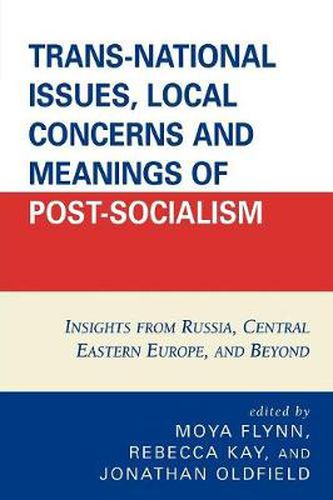Readings Newsletter
Become a Readings Member to make your shopping experience even easier.
Sign in or sign up for free!
You’re not far away from qualifying for FREE standard shipping within Australia
You’ve qualified for FREE standard shipping within Australia
The cart is loading…






This volume examines societal change in the countries of Central and Eastern Europe (CEE) and Russia in a purposeful movement away from the generalized debated associated with ‘transition’ theory and a simultaneous engagement with the complexities of everyday life throughout the region at the local level. In addition to addressing the problematic nature of a discursive east-west divide, Trans-National Issues, Local Concerns and Meanings of Post-Socialism brings together a range of academics and practitioners working on specific locally-situated concerns including drug use, HIV/AIDS, health, identity, and welfare as well as issues related to minority ethnic groups. While drawing attention to the salience of a common socialist past, these empirically-rich chapters highlight the importance of moving beyond simplistic east-west analytical framework in order to acknowledge the multifaceted societal realties evident with the former socialist countries of CEE and Russia.
$9.00 standard shipping within Australia
FREE standard shipping within Australia for orders over $100.00
Express & International shipping calculated at checkout
This volume examines societal change in the countries of Central and Eastern Europe (CEE) and Russia in a purposeful movement away from the generalized debated associated with ‘transition’ theory and a simultaneous engagement with the complexities of everyday life throughout the region at the local level. In addition to addressing the problematic nature of a discursive east-west divide, Trans-National Issues, Local Concerns and Meanings of Post-Socialism brings together a range of academics and practitioners working on specific locally-situated concerns including drug use, HIV/AIDS, health, identity, and welfare as well as issues related to minority ethnic groups. While drawing attention to the salience of a common socialist past, these empirically-rich chapters highlight the importance of moving beyond simplistic east-west analytical framework in order to acknowledge the multifaceted societal realties evident with the former socialist countries of CEE and Russia.